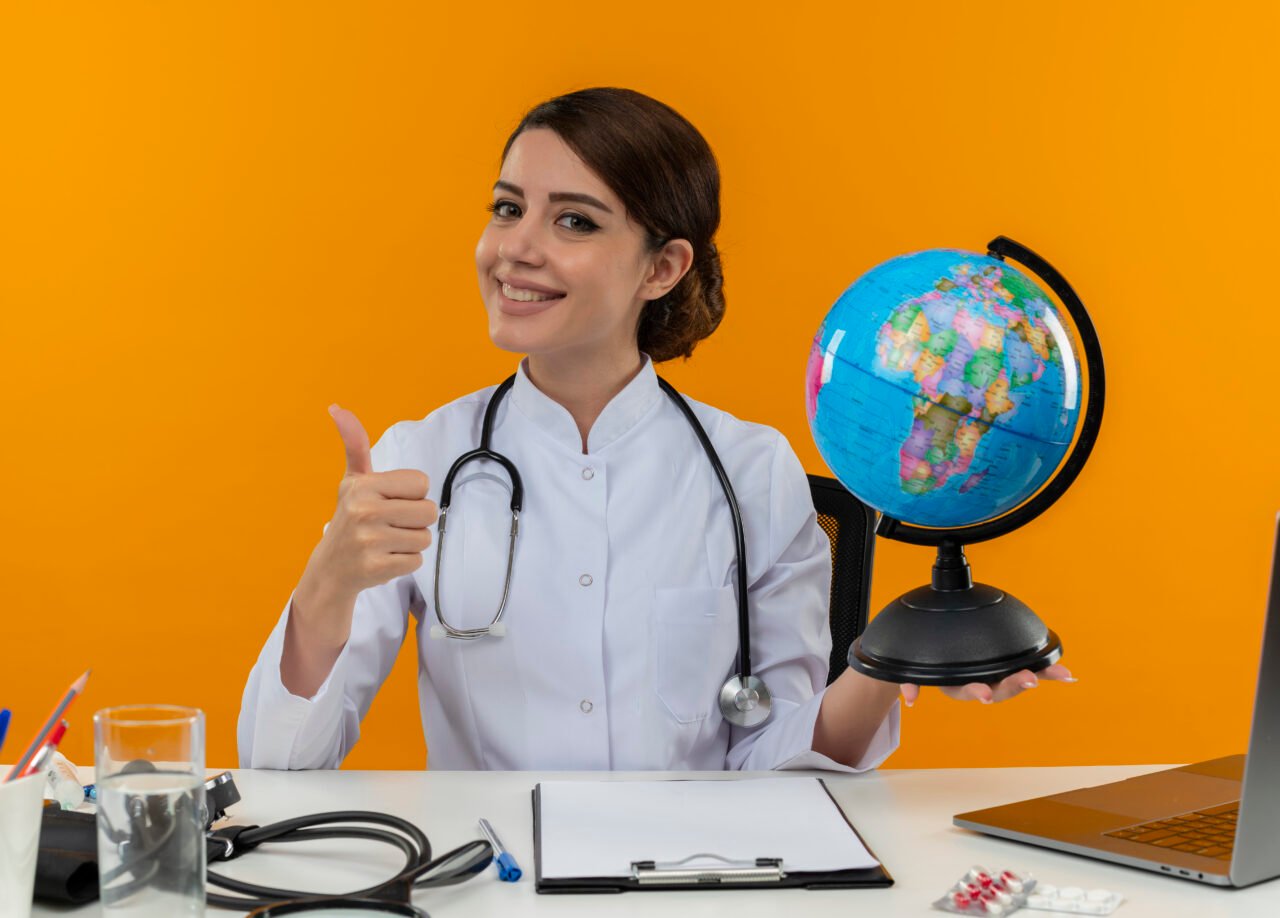Germany is known for its high-quality healthcare system and stringent professional standards. Every year, many foreign-trained doctors and dentists from countries like India, Pakistan, Egypt, and the Philippines aspire to work in Germany. However, practising medicine or dentistry in Germany with a foreign MBBS or BDS degree is not a straightforward process. It requires fulfilling several legal, educational, and linguistic conditions.
In this detailed guide, we’ll walk you through the exact requirements for recognition of foreign MBBS/BDS degrees in Germany, including licensing procedures, language requirements, and practical steps for application.
🇩🇪 Why Work as a Doctor or Dentist in Germany?
Before diving into the requirements, here’s why Germany is such an attractive destination for medical professionals:
- High demand: Germany faces a shortage of healthcare professionals, especially in rural areas.
- Excellent pay: Doctors and dentists earn competitive salaries, especially after specialization.
- Advanced training: Opportunities to pursue specialization (Facharzt) in world-class hospitals.
- Permanent residency: After a few years of working, you can apply for PR or even German citizenship.
But before enjoying these benefits, let’s explore the process of getting your degree recognized.

✅ Step-by-Step Guide: How to Get Your MBBS/BDS Degree Recognized in Germany
1. Determine Your Professional Status
Depending on your profession, you will fall under:
- Ärztin / Arzt – Doctor
- Zahnärztin / Zahnarzt – Dentist
Both professions are regulated in Germany, meaning you must obtain a license (Approbation) before you can work independently.
2. Check if Your Qualification is Equivalent
The competent authority (usually the regional medical council or health authority) will compare your foreign degree with the German equivalent.
- For MBBS holders: Your qualification must be equivalent to a German medical degree.
- For BDS holders: Your dental qualification must match the curriculum of a German dental degree.
If your studies and clinical practice match closely in content and duration, your qualification may be recognized directly. If not, you may be asked to undergo an assessment test (Kenntnisprüfung).
3. Choose Your Recognition Authority (by Region)
Germany doesn’t have a single nationwide authority for recognition. It depends on which federal state (Bundesland) you intend to work in.
Each region (e.g., Bavaria, Berlin, NRW) has its own “Approbationsbehörde” or State Health Authority, where you must submit your application.
👉 Example: If you plan to work in Frankfurt (Hesse), your recognition process will go through the Regierungspräsidium Darmstadt.
4. Language Requirements (Compulsory)
Proficiency in German is mandatory at both general and medical levels.
- General German (B2 Level): You must pass a B2 certificate (from Goethe Institut, telc, ÖSD etc.)
- Medical Language Exam (C1-Medical): You must also clear a C1-level “Fachsprachprüfung” or a medical language test to prove your ability to communicate with patients, colleagues, and authorities.
⚠️ Without C1 Medical German, you cannot proceed to the professional licence phase.
5. Documents Required for Recognition
Here’s a general list of documents you’ll need (subject to translation and authentication):
- Passport and proof of residency in Germany (if applicable)
- Degree certificate (MBBS/BDS)
- Transcript of records (detailing subjects and hours studied)
- Proof of internship/clinical rotation
- Certificate of good standing from the Medical/Dental Council of your country
- Language certificates (B2 + C1 Medical)
- Curriculum/Syllabus of your degree program
- Birth certificate
- CV/Resume
- Application form (from the relevant German state authority)
🔁 Translations: All documents must be officially translated into German by a certified translator.
6. Professional License (Approbation)
Once your documents and qualifications are deemed equivalent and your language requirements are met, you will be granted a permanent medical license (Approbation).
This allows you to:
- Work in hospitals or private practice
- Apply for specializations (Facharztausbildung)
- Earn a full salary as a licensed practitioner
📝 If your degree is not fully equivalent, you may receive:
- Temporary license (Berufserlaubnis): Valid for a limited time (usually 2 years), often under supervision, while you prepare for:
- Knowledge Test (Kenntnisprüfung): A practical and oral exam testing clinical knowledge and German medical system familiarity.
7. Passing the Kenntnisprüfung (if required)
If your MBBS or BDS is partially recognized, you will be asked to take this assessment exam.
Kenntnisprüfung (medical) or Zahnärztliche Kenntnisprüfung (dental) includes:
- Internal medicine, surgery, pharmacology, legal aspects
- Case-based oral/practical examination
- Conducted in German
You can prepare for it through:
- Courses at Akademie für Gesundheitsberufe
- Hospital internships (Hospitation)
- Private training institutes in Germany
📍Once passed, you receive the full Approbation.
🧾 Summary of Recognition Path
| Requirement | Details |
|---|---|
| Degree equivalence | MBBS/BDS must match German medical/dental education |
| Language | B2 German + C1 Medical German required |
| Documents | Verified, translated certificates, transcripts, and curriculum |
| License | Approbation (permanent), Berufserlaubnis (temporary) |
| Assessment test | Kenntnisprüfung if degree is not fully equivalent |
| Authority | Apply in the state (Bundesland) where you wish to work |
🕐 Timeline: How Long Does the Process Take?
- Document preparation: 2–4 months
- Language learning up to C1: 6–12 months
- Processing time after application: 6–12 months depending on region
- Exam preparation (if needed): 3–6 months
Total estimate: 1.5 to 2 years (faster if degree is already close to German standards)
💶 Cost of the Recognition Process
- Document translation & notarization: €500–€1,000
- Application fee: €200–€600 (varies by state)
- Language courses & exams: €2,000–€4,000
- Kenntnisprüfung preparation (if needed): €1,000–€3,000
Total estimated cost: €4,000 to €8,000 depending on pathway
👨⚕️ Alternative Route: Work as an Assistant Doctor (Assistenzarzt)
Many MBBS graduates enter Germany by securing a Berufserlaubnis, allowing them to work under supervision while preparing for the Approbation or Kenntnisprüfung. This lets them gain hospital experience and earn a basic salary while in transition.

🌍 What About EU vs. Non-EU Graduates?
- EU medical graduates: Easier and faster recognition under automatic EU recognition rules.
- Non-EU medical graduates: Must go through the full assessment, language proof, and possible testing phases.
Countries like India, Pakistan, Ukraine, Russia, and Egypt are considered non-EU, so applicants from these nations must follow the longer pathway.
✅ Final Tips for a Successful Recognition Journey
- Start language training early – C1 medical German is non-negotiable.
- Get your curriculum & clinical rotations detailed and ready – This is vital for equivalence checks.
- Choose your federal state wisely – Some states have faster processing than others.
- Be prepared financially – The process can be expensive and long.
- Consider Hospitation (observerships) – This boosts your CV and prepares you for the system.
- Use official channels – Refer only to state medical authorities or Anerkennung-in-Deutschland.de.
🏁 Conclusion
While Germany offers exceptional opportunities for foreign-trained MBBS and BDS graduates, the recognition process is thorough and challenging. From language skills to licensing exams and document validation, each step demands serious effort. However, with proper preparation, clear understanding of the requirements, and persistence, it’s entirely achievable.
If you’re committed to working as a doctor or dentist in Germany, start early, stay informed, and don’t hesitate to seek professional guidance where needed. The rewards—in terms of career, quality of life, and long-term security—are well worth the journey.
